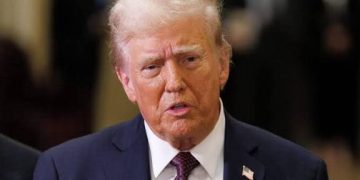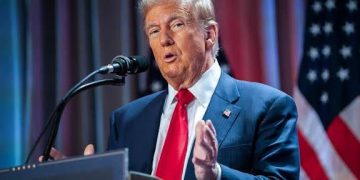A bill seeking to repeal and re-enact the Armed Forces Act has been read for the second time at the floor of the Senate.
The bill, titled: “A Bill for an Act to Repeal the Armed Forces Act and to Re-enact a Modern, Constitutionally Compliant and Operationally Responsive Legal Framework for the Armed Forces of the Federal Republic of Nigeria, and for Related Matters, 2025 (SB. 791)”, was sponsored by Abdulaziz Yar’adua, the senator representing Katsina Central.
Leading debate on the bill during Thursday’s plenary, Senator Yar’adua said the current Armed Forces Act, dated in the 1960s military decrees and last consolidated in 2004, no longer meets the demands of Nigeria’s constitutional and security realities.
“The armed forces of Nigeria remain the cornerstone of our sovereignty and national security,” he said. “They have stood gallantly in defence of our nation, from combating insurgency and terrorism to peacekeeping across Africa. However, our military law has not kept pace with the evolving defence environment.”
Yar’adua explained that the proposed legislation would align military governance with constitutional principles and democratic accountability, while modernising disciplinary procedures and operational structures.
He added that outdated fines, such as ₦200 and ₦500 penalties, would be replaced with percentage-based sanctions tied to salary levels, while fair hearing provisions and extended rights for non-commissioned officers would be introduced to boost morale.
“Many democracies, including the United States, United Kingdom, and South Africa, have modernised their military laws to ensure justice, accountability, and professionalism,” Yar’adua said. “Nigeria cannot afford to lag.”
Senator Ali Ndume, representing Borno South, supported the bill, saying that reforming the military’s legal framework was long overdue.
“As we evolve in our democracy, there is a need to align our armed forces with modern laws,” Ndume said.
For his part, Senator Tahir Monguno (Borno North) described the bill as a necessary step toward subjecting military authorities to democratic control.
“This bill seeks to bring our military laws in tandem with international best practices and under the authority of democratically elected institutions,” Monguno said.
Also speaking, Senator Samson Ekong (Akwa Ibom South), said the legislation articulated a “profound principle of reform,” adding that the time had come to deepen the nation’s defence policy framework.
The bill passed second reading after the Deputy Senate President, Barau Jibrin, who presided over the session, put it to a voice vote.
Barau referred the bill to the committees on defence, army, air force, and navy, with a directive to report back within four weeks.
“Our laws should change; our regulations should be modernised,” he said. “This should be not only in the military but in all spheres of our national life.”







































